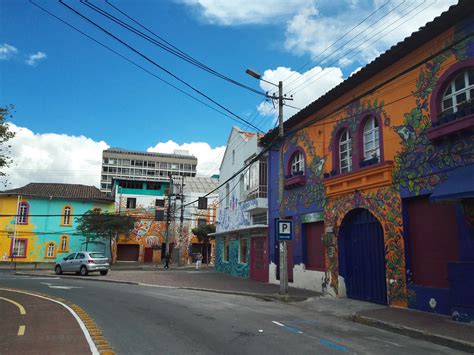La Mariscal: The Decline of Quito’s Former Nightlife Hub
La Mariscal, once Quito’s vibrant entertainment district, now feels abandoned. The newspaper Primicias visited the area on a quiet Tuesday night and noticed that the streets are nearly empty, with only a few people wandering through. The iconic Plaza Foch, once buzzing with tourists and nightlife, is deserted, with no police presence and only a handful of street promoters hoping to earn small commissions by drawing customers into sparsely attended bars and restaurants.
The businesses that remain open are struggling. Many establishments sit nearly empty, and owners are barely holding on, hoping for a turnaround that feels increasingly unlikely. The surrounding streets paint an even bleaker picture—boarded-up buildings, vacant lots, and signs advertising properties for rent are everywhere. Adding to the area’s challenges are the growing issues of homelessness, informal vendors, and drug activity, all of which contribute to a sense of insecurity.
Despite these struggles, a few places still attract a crowd. One rock bar on Lizardo García Street, for example, draws music enthusiasts who gather to sing along to their favorite bands. However, such energy is the exception rather than the rule, as most visitors remain on edge, constantly looking over their shoulders.
A Struggling Business Landscape
Local business owners describe the situation in La Mariscal as unsustainable. Many have been forced to close their doors due to a lack of customers. Efforts to revive the area through events like fairs and concerts bring temporary relief, but the crowds quickly disappear once the events end. A consistent, long-term plan to address the area's decline remains elusive, leaving business owners frustrated.
Security concerns are a major issue for both businesses and visitors. The absence of a coordinated safety strategy has left business owners to handle problems on their own, often resorting to desperate measures to keep their customers safe. The hospitality sector has also been severely impacted, with hotel occupancy rates plummeting and room prices dropping significantly.
A Delayed Recovery Plan
In 2024, the Quito municipality proposed a recovery plan for La Mariscal, outlining measures to stimulate investment, improve safety, and restore public spaces. However, the plan has been slow to move forward, and meaningful implementation could still be years away. The recovery process is expected to take as long as 12 years, leaving many questioning whether the area can hold on that long.
Key elements of the plan include reducing taxes to attract new businesses, revising zoning laws to encourage development, improving safety through collaboration between the city and police, restoring heritage buildings, and expanding green spaces. While these initiatives hold promise, the slow pace of progress has left many residents and business owners skeptical about the future of La Mariscal.
